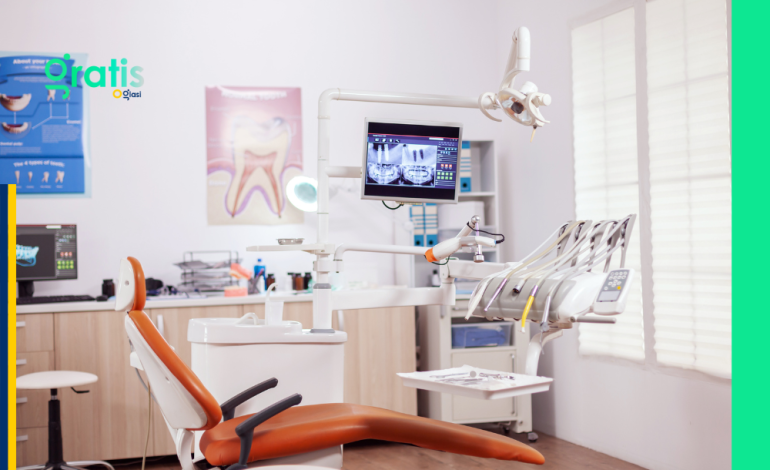
Osmijehni se sjajnije uz stručnjake iz Dental House
Želite poboljšati kvalitetu svog osmijeha? Na pravom ste mjestu. Bilo da razmišljate o kompletnoj transformaciji osmijeha ili ste samo zakasnili na redovnu kontrolu, saradnja s pravim stomatološkim stručnjacima čini ogromnu razliku. Dental House, vaš pouzdani partner za profesionalni tretman i blistaviji osmijeh, spreman je da vam pomogne.
Hajde da razgovaramo o tome kako vam Dental Clinic može pomoći da se osmijehnete s više samopouzdanja.
Šta čini Dental House drugačijim?
Možda se pitate: “Šta izdvaja Dental Clinic od ostalih ordinacija?” Sve se svodi na tri ključna elementa: individualiziran pristup, najsavremenija oprema i tim koji istinski brine o pacijentima.
U Dental House, svakom pacijentu pristupaju kao članu porodice. Ne vjeruju u univerzalne metode. Umjesto toga, odvoje vrijeme da upoznaju vaše ciljeve, potrebe i životni stil prije nego što izrade personalizirani plan liječenja. Bez obzira treba li vam estetska stomatologija ili preventivna njega – kod njih ste u sigurnim rukama.
Njihova savremena tehnologija i napredne metode omogućavaju brže i ugodnije preglede s dugotrajnim rezultatima. Recite zbogom zastarjelim tehnikama i dočekajte efikasan, bezbolan tretman.
Usluge koje nudi Dental House
Jedna od najboljih stvari kod Dental Clinic je širok spektar usluga na jednom mjestu. Ne morate obilaziti više ordinacija da biste postigli osmijeh kakav želite. Evo kratkog pregleda njihove ponude:
- Preventivna njega
Prevencija je glavni prioritet u Dental Clinic, od redovnog čišćenja zuba do temeljitih stomatoloških pregleda. Oni vam pomažu da prepoznate probleme prije nego što postanu skupi za liječenje.
- Estetska stomatologija
Želite osmijeh kao iz Hollywooda? Dental Clinic nudi transformacije osmijeha, fasete i postupke izbjeljivanja zuba koji su osmišljeni da poboljšaju vaš izgled i samopouzdanje.
- Rekonstruktivni tretmani
Karijes? Pukotine na zubima? Nedostaju li vam kutnjaci? Dental Clinic nudi vrhunske krunice, mostove, plombe i implantate kako bi vratio izgled i funkcionalnost vašeg osmijeha.
Za djecu, tinejdžere i odrasle, Dental Clinic nudi fiksne aparatiće ili providne alignere. Njihova individualizirana metoda čini ispravljanje zuba jednostavnijim nego ikad prije.
- Dječija stomatologija
Imate djecu? Osoblje u Dental Clinic-u je educirano da stomatološke preglede učini zabavnim i bez stresa za djecu, potičući zdrave navike od najranije dobi.
- Hitna stomatološka pomoć
Zubobolja usred noći? Ili ste možda oštetili zub tokom vikenda? Budući da zubni problemi ne čekaju, Dental House pruža hitne stomatološke usluge upravo onda kada vam najviše trebaju.
Proces transformacije osmijeha
Ako razmišljate o potpunoj transformaciji osmijeha, oduševit će vas pristup koji nudi Dental Clinic. Evo kako taj proces obično izgleda:
- Početne konsultacije
Ljubazan stomatolog će sjesti s vama i iskreno saslušati vaše ciljeve i brige.
- Digitalno snimanje i procjena
Dental House koristi napredne skenere i snimke kako bi dobio potpunu sliku o vašem oralnom zdravlju.
- Prilagođen plan liječenja
Proći će s vama sve dostupne opcije, objasniti troškove i izraditi plan prilagođen isključivo vama.
- Korak po korak transformacija
Bez obzira uključuje li vaš tretman fasete, implantate ili izbjeljivanje zuba, postupci se pažljivo planiraju i često zahtijevaju minimalno vrijeme oporavka.
- Praćenje i održavanje
Dental Clinic ostaje uz vas i nakon zahvata, kako bi osigurali dugotrajne rezultate.
Strah od zubara? Nema problema
Budimo iskreni – niko ne voli ići zubaru. Međutim, Dental House je sebi postavio cilj da to promijeni. Oni idu korak dalje kako bi osigurali vašu sigurnost i udobnost – od prijatnih čekaonica do blagih opcija sedacije.
Osoblje je izuzetno ljubazno i odvoji vrijeme da vam objasni svaki korak. Posebno ako već godinama odgađate stomatološke tretmane, ovdje nećete naići na osudu. Vidjeli su sve i tu su da vam pomognu – bez brige.
Priče stvarnih pacijenata
Još uvijek niste uvjereni? Pogledajmo šta kažu ljudi koji su svoje osmijehe povjerili Dental House:
- “Stidjela sam se da se smijem na slikama. Nakon samo nekoliko tretmana u Dental House-u, osjećam se potpuno drugačije. Osoblje je bilo toliko ljubazno da se nikad nisam osjećala osuđivano.” – Sara M.
- “Prije nego što smo otkrili Dental House, moj sin se plašio zubara. Danas se iskreno raduje svakom terminu. Za mene je to prava pobjeda!” – Daniel T.
Ove stvarne transformacije govore mnogo o stručnosti i pažnji koju možete očekivati.
Zašto je oralno zdravlje važnije nego što mislite
Briga o zubima nije važna samo zbog izgleda – već i zbog cjelokupnog zdravlja. Loša oralna higijena povezuje se s bolestima srca, dijabetesom, pa čak i Alzheimerovom bolešću. Kada svoje zube povjerite Dental House, ulažete u vlastito zdravlje.
A budimo realni – cijelo tijelo se osjeća bolje kada su usta zdrava. Više ćete se smijati, bolje jesti i kvalitetnije spavati.
Jednostavno zakazivanje i pristupačne opcije
Jedna od najvećih prednosti Dental Home je što vam olakšava početak. Mogućnost zakazivanja termina putem interneta, fleksibilni rasporedi i rad vikendom znače da ne morate mijenjati cijeli svoj raspored da biste posjetili stomatologa.
Osim toga, Dental House nudi različite planove plaćanja uz pristupačne cijene. Bez obzira da li imate osiguranje ili ne, potrudiće se da vam tretmani budu dostupni.
Često postavljana pitanja
Dental House se izdvaja po najsavremenijoj tehnologiji, pažljivom osoblju i individualiziranom pristupu. Izrađuju personalizirane planove liječenja koji odgovaraju vašim posebnim potrebama i ciljevima.
Da, Dental House nudi kompletnu stomatološku njegu za djecu i odrasle, uključujući ortodonciju, dječiju stomatologiju i porodičnu opštu stomatologiju.
Naravno. Kako bi vas oslobodili bola, Dental House pruža brzu hitnu stomatološku njegu za zubobolju, polomljene zube i druge hitne probleme.






